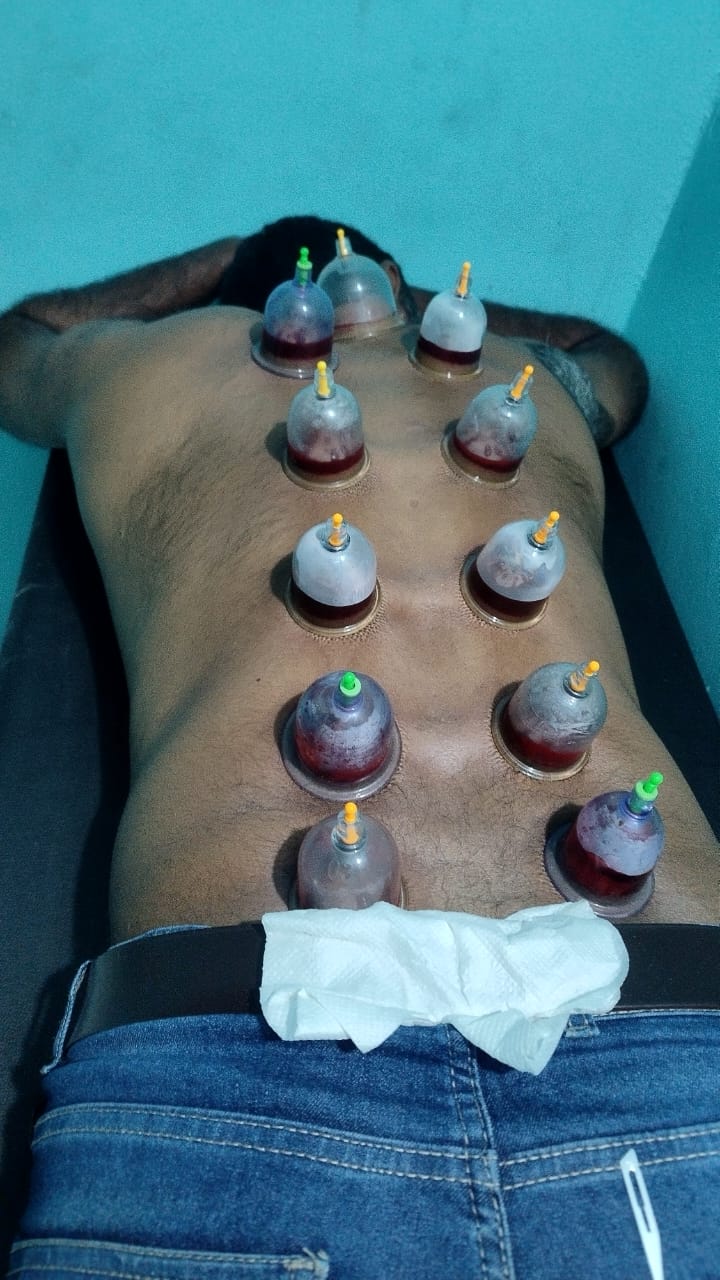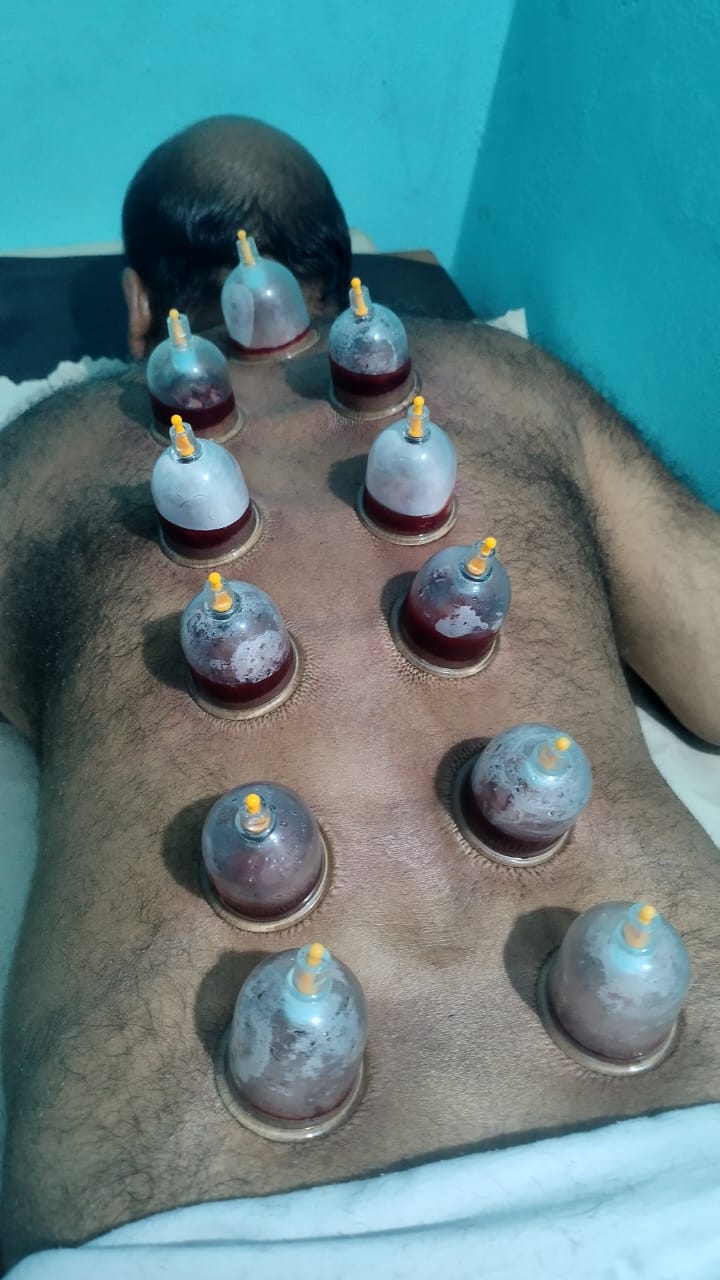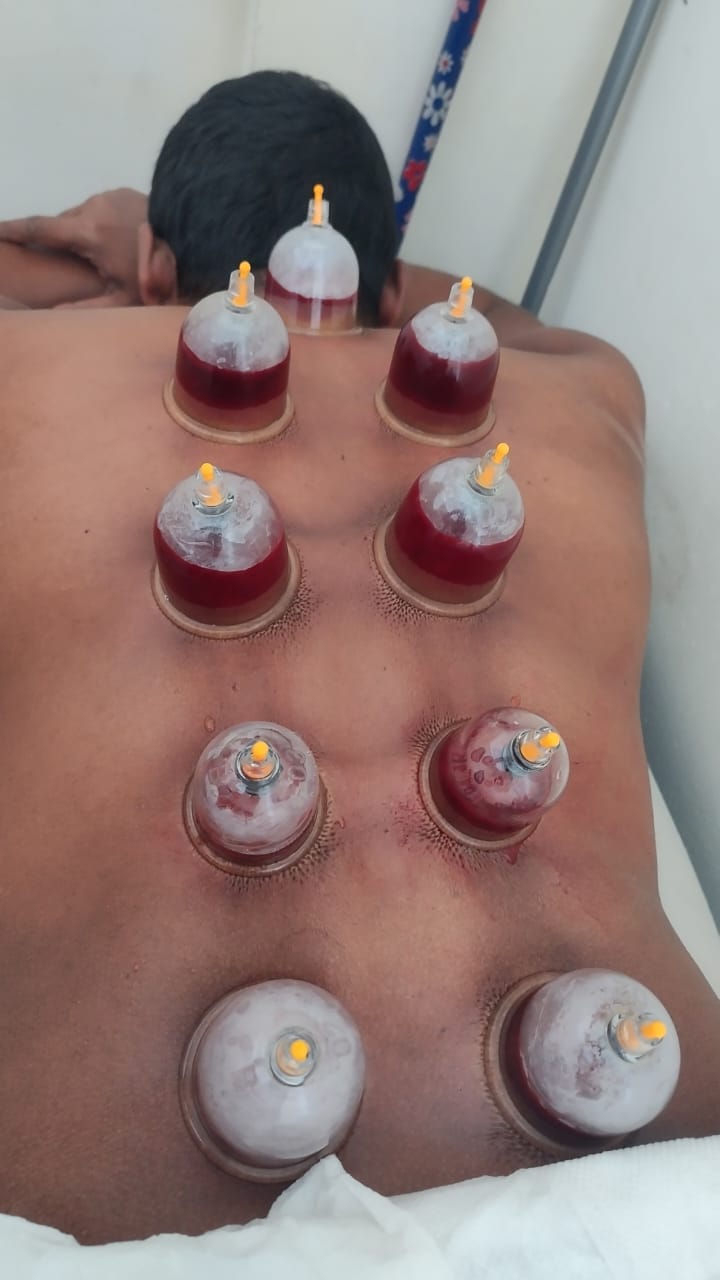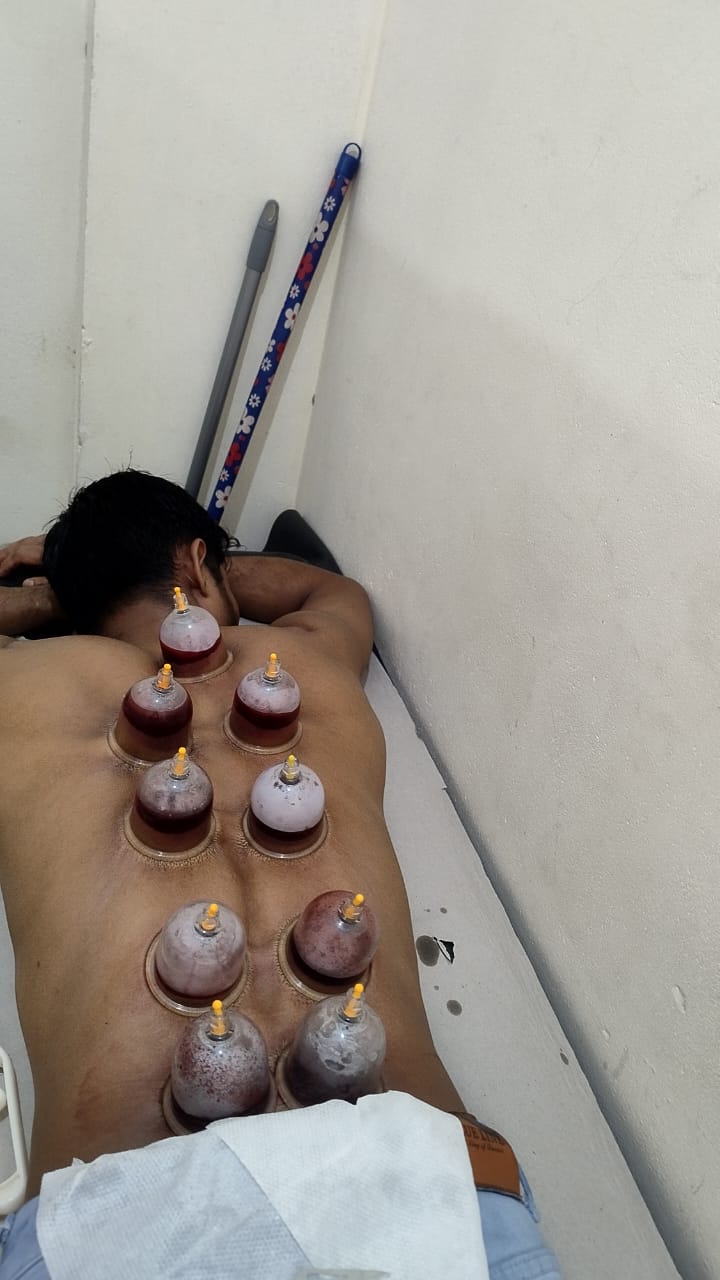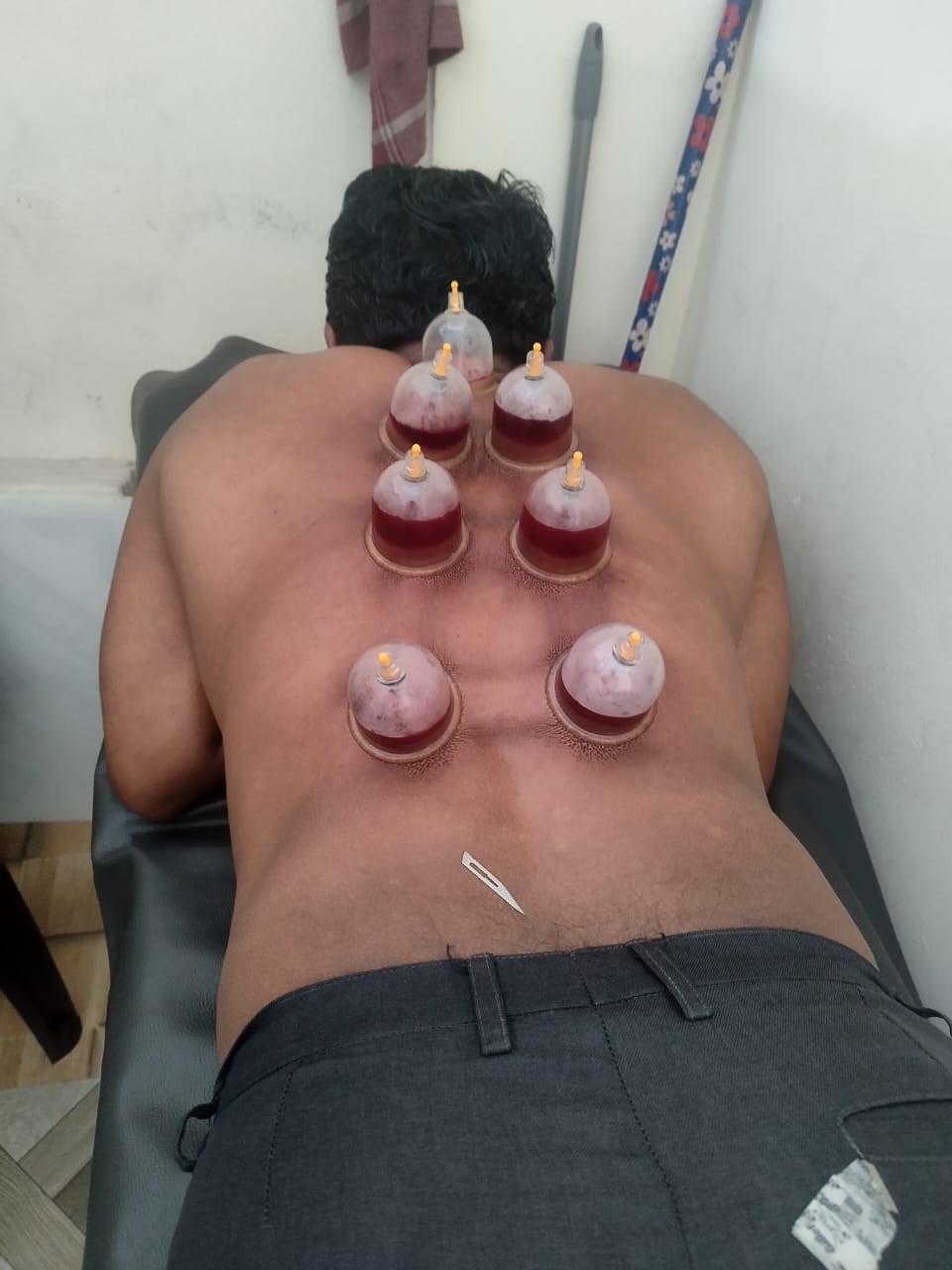Aqsa Acupuncture and Hijama Treatment Center: Your Trusted Health and Wellness Destination in Kozhikode
Aqsa Acupuncture and Hijama Treatment Center, established in 2021, is a leading wellness center based in Kozhikode, specializing in traditional and holistic healing practices such as Hijama Therapy, Acupuncture Treatment, Hijama Cupping, Naturopathy, and more. The center combines ancient wisdom with modern techniques to offer a range of therapies aimed at improving overall health, managing chronic conditions, and promoting well-being. Whether you are seeking relief from pain, stress, or various health ailments, Aqsa Acupuncture provides a holistic approach to healing, ensuring each patient receives personalized care.
Credibility
At Aqsa Acupuncture and Hijama Treatment Center, we prioritize the well-being of our clients by offering safe, effective, and natural treatments. Our team is led by experienced practitioners who are trained in Hijama and Acupuncture, with extensive knowledge of these ancient practices. We take pride in offering scientifically backed therapies that have been shown to enhance physical and emotional health. Our center is committed to maintaining high standards of hygiene and safety, ensuring a comfortable and healing environment for all our clients. With a growing reputation in Kozhikode and beyond, Aqsa Acupuncture has earned trust for its dedication to natural healing and patient satisfaction.
Services Offered
Aqsa Acupuncture and Hijama Treatment Center offers a comprehensive range of therapies and services aimed at improving your health and overall quality of life:
Hijama Treatment & Hijama Cupping: Traditional Hijama Therapy (also known as cupping) is a highly effective treatment for pain management, stress relief, detoxification, and more. It involves creating suction on the skin with specialized cups to promote blood flow and stimulate healing.
Acupuncture Treatment: Acupuncture is an ancient Chinese medicine technique that involves inserting thin needles at specific points on the body to balance energy and promote healing. It is known for its effectiveness in treating pain, anxiety, depression, and many chronic conditions.
Naturopathy: Naturopathy is a holistic approach to health that emphasizes the body's natural ability to heal itself. Our Naturopathy treatments use diet, exercise, herbs, and other natural therapies to restore balance and well-being.
Diabetes Reversal Treatment: We offer specialized Diabetes Reversal Treatment through natural therapies that focus on diet modification, lifestyle changes, and stress management, providing a holistic approach to managing and reversing diabetes.
Allergy Treatment: Our allergy treatments are designed to relieve symptoms of various allergies, including seasonal and food allergies, through natural and safe healing methods.
Location Overview
Conveniently located near Care Well Hospital Road in Ramanattukara, Kozhikode, Aqsa Acupuncture and Hijama Treatment Center is easily accessible to individuals in the city and surrounding areas. We are open from 10:00 AM to 5:00 PM on weekdays, ensuring that our clients can visit us during their convenient hours. Our center provides a calming, serene environment that is ideal for healing and relaxation. Whether you are coming for Hijama Therapy or Acupuncture Treatment, we ensure that your experience is both comfortable and therapeutic.
Customer Testimonials
"A truly healing experience!"
"I came to Aqsa for Hijama Therapy to deal with chronic back pain, and I was amazed at how much better I felt after just a few sessions. The staff is friendly and professional, and the treatment helped me relieve pain I’ve had for years. Highly recommended!"
— Afsal K.
"Wonderful acupuncture treatment!"
"I’ve been struggling with stress and anxiety for a while, and after trying several treatments, I found relief at Aqsa Acupuncture Center. The acupuncture treatment really helped to balance my energy and ease my mind. The clinic is very clean, and the staff are knowledgeable and compassionate."
— Shamina T.
Frequently Asked Questions (FAQs)
1. Where is the best Hijama Treatment Center in Kozhikode?
Aqsa Acupuncture and Hijama Treatment Center is one of the top Hijama treatment centers in Kozhikode, specializing in Hijama Therapy and offering professional and safe treatments to help manage pain, stress, and improve overall health.
2. What is Hijama Therapy in Kozhikode?
Hijama Therapy in Kozhikode involves the practice of Hijama Cupping, where suction cups are applied to the skin to enhance circulation and promote healing. It’s used for pain relief, detoxification, and overall wellness.
3. Where can I get Hijama Cupping in Kozhikode?
You can visit Aqsa Acupuncture and Hijama Treatment Center for professional Hijama Cupping services in Kozhikode. Our experienced therapists use traditional techniques to ensure effective and safe treatment.
4. Where is a good Acupuncture Treatment Center in Kozhikode?
Aqsa Acupuncture and Hijama Treatment Center is one of the leading Acupuncture Treatment Centers in Kozhikode, offering customized acupuncture services to treat a wide range of health conditions.
5. Who are the best Acupuncture Doctors in Kozhikode?
Our team of skilled and certified Acupuncture Doctors in Kozhikode offers personalized treatment to address pain, stress, and many other health concerns. At Aqsa, you will be treated by experienced practitioners dedicated to your well-being.
6. Where can I find Naturopathy Clinics in Kozhikode?
Aqsa Acupuncture and Hijama Treatment Center provides Naturopathy treatments in Kozhikode, focusing on holistic healing using natural methods like diet, lifestyle modifications, and herbal therapies.
7. Are there any good Acupuncture Clinics in Kozhikode?
Yes, Aqsa Acupuncture and Hijama Treatment Center is a well-known Acupuncture Clinic in Kozhikode, offering effective acupuncture treatments for various health conditions such as chronic pain, anxiety, and more.
8. Where can I get Cupping Therapy in Kozhikode?
If you're looking for Cupping Therapy in Kozhikode, Aqsa Acupuncture and Hijama Treatment Center provides professional Hijama Cupping services to promote healing, relieve pain, and improve overall health.



